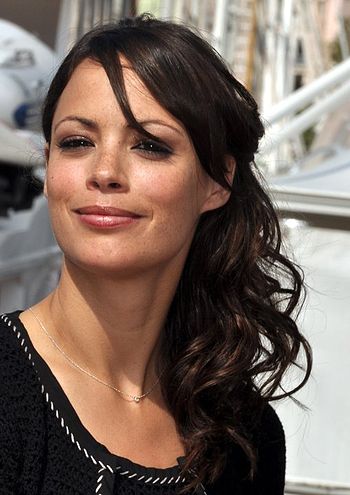by Dean | Sep 11, 2019 | General
It shouldn’t be this way, but every time a good deed is done in the “inspiring” It Could Happen to You (1994), it seems ersatz. In large part this is because Nicolas Cage, in this Capra-like little film, lacks the liveliness and purity of heart of, say, James Stewart in Capra’s It’s a Wonderful Life. Both are morally encouraging guys, but only one is truly authentic.
Ah, but Andrew Bergman‘s movie needs more verity in any case. There is third-rate characterization in Rosie Perez‘s role, and an ending more moralistic than moral (with the punishing of both Perez and Stanley Tucci). The acting is often a letdown except for that of Bridget Fonda, who provides the only depth the film possesses. One critic opined that Fonda “isn’t at her best” in It Could Happen to You. What nonsense. She is superlative.
by Dean | Sep 9, 2019 | General
Lucian Pintilie‘s 1994 comic tragedy, An Unforgettable Summer, begins, or almost begins, with the Romanian commanding officer of Captain Dumitriu (Claudiu Bleont) putting the moves on Dumitriu’s wife, Marie-Therese (Kristin Scott Thomas), before the captain’s very eyes. Marie-Therese, however, spurns the gent and Dumitriu requests a transfer to a new garrison. Sullenly the commanding officer dispatches the captain and his brood to the dry, barren and awful Romanian border. (The time is 1925.) All in all, the C.O. has coldly bullied Dumitriu.
On the border, by and by, eight Romanian soldiers are murdered by bandits believed to be Bulgarian. A small group of Bulgarian peasants maintains that the bandits are Macedonians, but the Romanians don’t listen to them. They know the peasants are not the bandits, but they proceed to beat them in the hope of getting information—even as the odd charade of the peasants’ tending Dumitriu’s vegetable garden (for pay) is initiated. As it happens, the peasants are intended for execution, which throws Dumitriu into a distressing inner conflict and Marie-Therese into shock and desperation.
So again there is bullying: political and military bullying. Behind it is lust—for women, for retaliation, for power over others. A tide of legal aggression can be opposed only with reluctance.
As director and scenarist, Pintilie has adapted a novel titled The Salad. His direction is terrifically shrewd and ambitious, and, although we don’t need to see the uninteresting body of Kristin Scott Thomas in the nude, Summer is magnificently acted. It is a film about military violence as dark, I’d say, as our 18-year-old war in arid Afghanistan.
I have seen this film on VHS and, free of charge, on YouTube.
(In Romanian with English subtitles)
by Dean | Sep 5, 2019 | General
Bruce Beresford, once again, directed perceptively when he made Mister Johnson (1990), which stars Maynard Eziashi as a black man in British Colonial Nigeria who aims to live the good life. But there is no good life when the person himself is not good and when he is thrust into misfitism by an arrogant and insulting colonial power.
Mr. Johnson identifies as an Englishman but, well, he could never become a gentleman. He is a thief; he embezzles and excessively borrows money. He values getting rich above all else. Moral ambiguity is as thick as London fog here. Johnson suffers more from his illicit choices than from pervasive racial prejudice. In a powerful, stunningly natural performance, Edward Woodard enacts a complex bigot—one who becomes a black man’s victim.
Based on a Joyce Cary novel, Beresford’s film was adeptly screenwritten by William Boyd, with palatable acting by Eziashi, Pierce Brosnan (as an admirable colonial), and Beatie Edney. A handsome-looking production, it is just as impressive as the director’s Breaker Morant and Rich in Love.
by Dean | Sep 2, 2019 | General
Did an affair between Marie-Anne (Berenice Bejo) and the married Samir (Tahar Rahim) compel Samir’s depressive wife to try to commit suicide? This is the central question in The Past (2014), a film by Iranian director-writer Ashar Farhadi (A Separation) and one set in contemporary France.
The grip of the past is the most important theme here, but there are others: the complications produced by what could be called the lust for love, even marital love; when divorce, however inevitable, fails to bring finality; the innocence of children over against the culpability of adults. Though morose, it is a brilliant and probing film by a gifted man. And his cast doesn’t let him down. Bejo never sounds a false note at somberness or emotional outburst.
(In French with English subtitles)

Français : Berenice Bejo au festival de Cannes (Photo credit: Wikipedia)
by Dean | Aug 31, 2019 | General
Eddie Darrow, played by Tony Curtis, is sent to Macao, which borders China, to bring back to the U.S. a gangster’s ex-wife (Joanne Dru) because of the money she possesses. There are prodigious difficulties, though, because 1) the ex-wife (Christine by name) is Eddie’s old flame and 2) she is now the fiancee of Justin, a Macao casino owner. And here we have Rudolph Mate‘s Forbidden, from 1953.
This is a very likable movie, but I wish fewer entertainment films strained credulity, as Forbidden does quite often. (Aw shucks, Christine overheard Eddie’s cock-and-bull story to an American gangster [a story the gangster was prepared to believe] about how he planned to deceive her.) But when it doesn’t strain credulity, William Sackheim’s screenplay is gratifying. The film is robust—if not, I’m afraid, a masterpiece of acting. Curtis is mediocre. Dru gives a merely routine performance although, along with being beautiful, she is as classy-looking as a human being can get. Lyle Bettger, as Justin, knows how to be debonair—and memorable.




